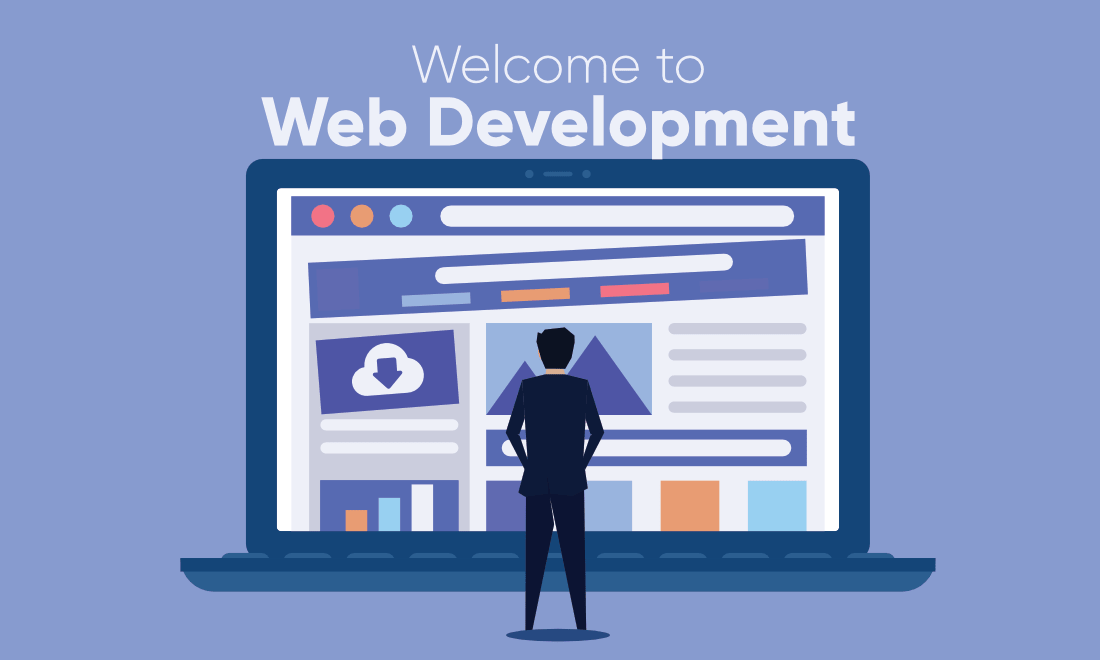
How to Become a Web Developer
Is Web Development Hard?
Sometimes web development seems like a dream career. Web developer can work anywhere in the world, often remotely, and every industry seems to employ them. Web developers can work as consultants or entrepreneurs—they can also work for agencies or in-house for a company. It’s hard to beat that level of elasticity in a career.
But if everyone could just snap their fingers and wake up as a web developer, there’d be a lot more people in this career for marketing. You know there can be a learning curve to this in-demand career, and you want to know how steep it is.
What is the difference between a web developer and a web designer?
While the roles of web developers and web designers are interdependent, they are also very different in terms of their required skill sets and duties.
Web designers create the aesthetic elements of a site, including all visuals, graphics and imagery. The use of image editing software such as Photoshop is key to their role.
Web developers take the website design created by a web designer, then make a functioning website from it.
Web developers can be split into two different areas of responsibilities and skills – frontend and backend. Frontend developers focus on programming languages such as HTML, CSS and Javascript to create the visual and interactive parts of a website – essentially the parts you can see.
Backend developers are responsible for creating the logic that runs on a server which typically involves communicating with a database and manipulating data, before passing it back to the browser and presenting to the user. Typical programming languages used are PHP, Ruby, ASP are SQL.
Within an agency, the roles tend to follow a framework:
- Creatives – also known as web designers, responsible for design work, using software such as Photoshop and Sketch
- UID – User Interface developers – also known as frontend developers. Using HTML, CSS and Javascript, they will create interactivity including mouseovers, on screen validation and interactivity
- Backend developers – write code which interprets user input and either stores it to a database or performs functions on the input such as calculation libraries or templating systems
- Most modern sites will require both backend and frontend development. Backend technologies consist of languages like C# and sit in frameworks like the .Net framework
What qualifications do you need to become a web developer?
While there are no formal or specific qualifications required to become a web developer, a numerate degree in a subject such as maths or science will be useful.
You should also ideally have an aptitude for – or experience of – elements such as:
- User experience (UX)
- User interface (UI)
- Visual design
- Coding languages including HTML and CSS
- Frontend web programing languages and skills such as JavaScript, Ajax and web animation techniques
- Backend web programing languages such as C# or Java, PHP and Ruby
- Design software like Photoshop and Illustrator and Sketch
- An understanding of SEO
- Web servers and how they function
A career as a web developer is very specialized. While programs such as Adobe Dreamweaver and platforms such as WordPress are often perceived to take the place of core coding skills – and they do indeed allow novice users to create sites with basic knowledge – developing sites for corporate clients requires high levels of customization which cannot be met with the use of programs such as Adobe Dreamweaver, as web developers are required to code in the raw language of the web.
How much do web developers earn?
While there is no specific salary and what you earn will depend upon experience and expertise, the average salary for a web developer typically sits between £18k for those just beginning their career and £40k for those who are well established.
Self-employed web developers set their own rates, typically by the hour or by the project.



